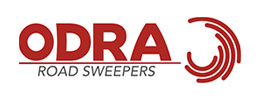CODE OF ETHICS
Background/Purpose
- The NAPSA has a specific Code of Ethics in effect for all NAPSA circumstances.
Scope/Application
- All members of the North American Power Sweeping Association.
Policy
- NAPSA’s Code of Ethics shall be the only authorized version published and/or otherwise reproduced.
Code of Ethics
An expression of principles of proper ethics in the pursuit of our industry as related to the public, our fellow
contractors, our employees, and this organization.
NAPSA member shall:
- Agree to carry reasonable levels of liability insurance and provide customers a copy of certificate of insurance upon request.
- Agree to carry worker’s compensation insurance on all employees and require that all subcontractors comply with such rules.
- Agree to comply with all local, state and federal regulations in regard to the proper disposal of sweeping debris.
- Provide customers proof of proper disposal methods upon request.
- Collect and pay all appropriate taxes, including all payroll, sales and fuel taxes.
- Agree to provide training for all equipment.
- Continuously strive to provide employees with safe working conditions.
- Follow all state and federal laws in regard to compensation.
- To conduct their business with honesty, integrity and project a professional image in all endeavors
- To be truthful and non-deceptive in advertising
- All proposals shall be complete and accurate in describing services and products rendered.
Ethics Policy
Approved by the Board of Directors: October 10, 2000
Revised: August 7, 2010, November 9, 2011, January 14, 2016
Reviewed: January 24, 2023
HEARING PROCEDURES
Background
If a NAPSA member files a complaint against another member or if a consumer files a complaint against one of our members and this complaint constitutes a violation of The Code of Conduct, NAPSA provides an avenue to rectify such a grievance. This policy outlines a hearing procedure for such complaints. The NAPSA Board of Directors has, by resolution, adopted a procedure
Scope/Applications
This policy and procedure would affect any member of NAPSA. The objective of these hearing procedures is to provide NAPSA members with an opportunity to be heard prior to the Board of Directors taking adverse action while recognizing the duty of the Board of Directors to uphold the bylaws and act in the best interests of the industry and NAPSA. Any member may file a complaint with the Board of Directors if it appears there has been a violation of the Code of Ethics. It is to be noted that NAPSA has no power to assess levies, fines or other financial penalties on members nor does it have power to collect payments for members. NAPSA will not act as arbitrator for complaints other than alleged violations to the NAPSA Code of Ethics.
The full Board of Directors shall serve as hearing council. The chairman of the Board of Directors or his or her designee shall be the preceding officer. The Chairman may, in his or her discretion, designate a non-board member or non-NAPSA member as the presiding officer. An affirmative vote of two-thirds of the hearing council shall constitute action of the Board of Directors with respect to member discipline up to and potentially including expulsion. A simple majority is required for all other Board action unless otherwise specified in the Bylaws.
Procedure
Any member making any such complaint is required to do in writing and to provide information relevant to the case. The member or members against whom the action is taken shall respond to the Board of Directors in writing as well.
The Board of Directors will review any such complaint and determine if a hearing is warranted. If approved, a hearing will be set forth to determine whether the alleged misconduct constitutes just cause for action. Any adverse action against a member shall only be by an affirmative two-thirds vote of the full Board at a future board meeting.
Hearing Procedure
A. Notice
If a complaint is filed, the Board shall schedule a hearing and shall:
- Advise the party(ies) of the complaint;
- Advise the party(ies) of the process for reviewing the complaint;
- Advise the party(ies) of his or her rights at the hearing:
- to be assisted by a representative of his or her choice;
- to respond to the evidence against him or her;
- to present evidence and submit a written statement; and
- upon completion of the hearing, to receive the decision of the Board of Directors including a statement of the basis for the decision.
B. Procedures
- The focus of the inquiry in disciplinary proceedings against a member for suspension or expulsion shall be whether there is just cause for the action.
- Formal rules of evidence shall not be applicable, nor shall deviations from proscribed procedures necessarily invalidate a decision or proceeding, unless significant prejudice to a respondent, complainant or the Board of Directors will result.
- Respondent(s) whose failure to respond after proper notice or has not been excused by the Board will be deemed to have waived their right to respond and the ability to contest subsequent discipline taken as the result of the complaint.
- Hearings will be closed to the public.
- Hearings shall be recorded either by written or electronic means for NAPSA’s file. The method or recording shall be within the discretion of the presiding officer.
- A board member who has filed a complaint or had a complaint filed against them, shall be disqualified from the hearing and shall not be permitted to vote.
- Witnesses shall be asked to affirm that their testimony is truthful.
- Formal rules of evidence shall not be applicable to these proceedings. The presiding officer shall give consideration to claims of confidentiality and privilege, but shall otherwise admit all matters into evidence which reasonable persons would accept as relevant or having probative value. Unduly repetitious or irrelevant evidence may be excluded.
- At the conclusion of the hearing, the hearing council shall deliberate and make a determination of whether there was just cause to take compliance action against a member.
- The respondent(s) and complainant(s) shall be promptly notified of the final action of the hearing council. There shall be no further right of appeal or review.
C. Records
Records of all proceedings shall be retained by the Board of Directors on a confidential basis.















